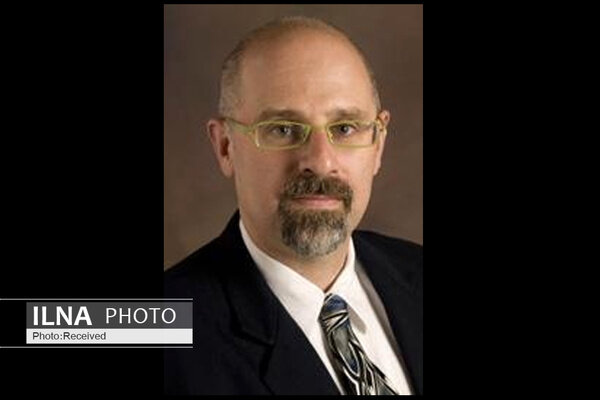Sanctions harm people’s health, says Chicago University professor

TEHRAN - Tom Ginsburg, professor of political science at the University of Chicago, has said that sanctions limit the countries’ capacities to protect the people’s health in the coronavirus pandemic.
“The international sanctions in a pandemic are a serious problem. Sanctions violate international law and the human rights,” Ginsburg told ILNA in an interview published on Sunday.
He noted that sanctions cause impediments to contain the pandemic.
In a letter to Foreign Minister Mohammad Javad Zarif on Thursday, Russian Foreign Minister Sergei Lavrov said that the United States’ “illegal sanctions” against Iran hamper fight against the coronavirus outbreak.
“Russia constantly notes illegal nature of the United States’ unilateral sanctions on Iran. We have always called on the United States to remove the sanctions and stop obstructing fight against the coronavirus,” Lavrov stated.
The Russian diplomat also urged the European countries not to be afraid of the U.S. threats and continue interaction with Iranian partners.
Zarif has said the U.S. “economic terror” against Iran has increased to “medical terror”.
“Our persistent and coordinated diplomacy with like-minded countries will bring about certain results. In his letter to heads of G20 countries, [Antonio] Guterres, the UN secretary general, urged removal of sanctions. Michelle Bachelet, the UN high commissioner, has made criticisms regarding the human rights,” Lavrov stated.
In a letter to the G-20 economic powers on March 24, Guterres called for rolling back international sanctions regimes around the world.
Guterres said sanctions are heightening the health risks for millions of people and weakening the global effort to contain the spread of the new coronavirus, Foreign Policy reported.
“I am encouraging the waiving of sanctions imposed on countries to ensure access to food, essential health supplies, and COVID-19 medical support. This is the time for solidarity, not exclusion,” he said.
“Let us remember that we are only as strong as the weakest health system in our interconnected world,” the UN chief said.
Bachelet also said on March 24 that “in a context of a global pandemic, impeding medical efforts in one country heightens the risk for all of us.”
“At this crucial time, both for global public health reasons, and to support the rights and lives of millions of people in these countries, sectoral sanctions should be eased or suspended,” she said in a statement.
Renowned American scholar Noam Chomsky has said it is “sheer sadism” that the United States maintains sanctions on Iran during the coronavirus pandemic.
“The sanctions are illegitimate in the first place, and maintaining them during the pandemic is sheer sadism,” Chomsky told IRNA in an interview published on May 2.
Speaking from his office in self-isolation to Croatian philosopher and author Srecko Horvat in April, Chomsky blasted U.S. President Donald Trump for continuing sanctions on Iran.
“When the U.S. imposes devastating sanctions – it’s the only country that can do that, everyone has to follow ... the master. Or else they are kicked out the financial system,” said Chomsky, according to Aljazeera.
Presumptive Democratic presidential nominee Joe Biden said on April 2 that Trump’s administration must ease economic sanctions on Iran as a humanitarian gesture during the global coronavirus pandemic.
The former vice president said the U.S. has a moral obligation to be among the first to offer aid to people in need regardless of where they live when confronting a virus that knows no borders or political affiliations, according to Aljazeera.
Chris Murphy, the U.S. senator from Connecticut, warned on April 13 that the Trump administration could be partially responsible for “the death of innocent people” if it continues its current policies towards Iran amidst the epidemic.
Murphy also wrote on his Twitter page on April 6 that Iranians are dying of coronavirus partly because of U.S. sanctions.
“Innocent civilians are dying there in part because our sanctions are limiting humanitarian aid during coronavirus,” he tweeted.
NA/PA
